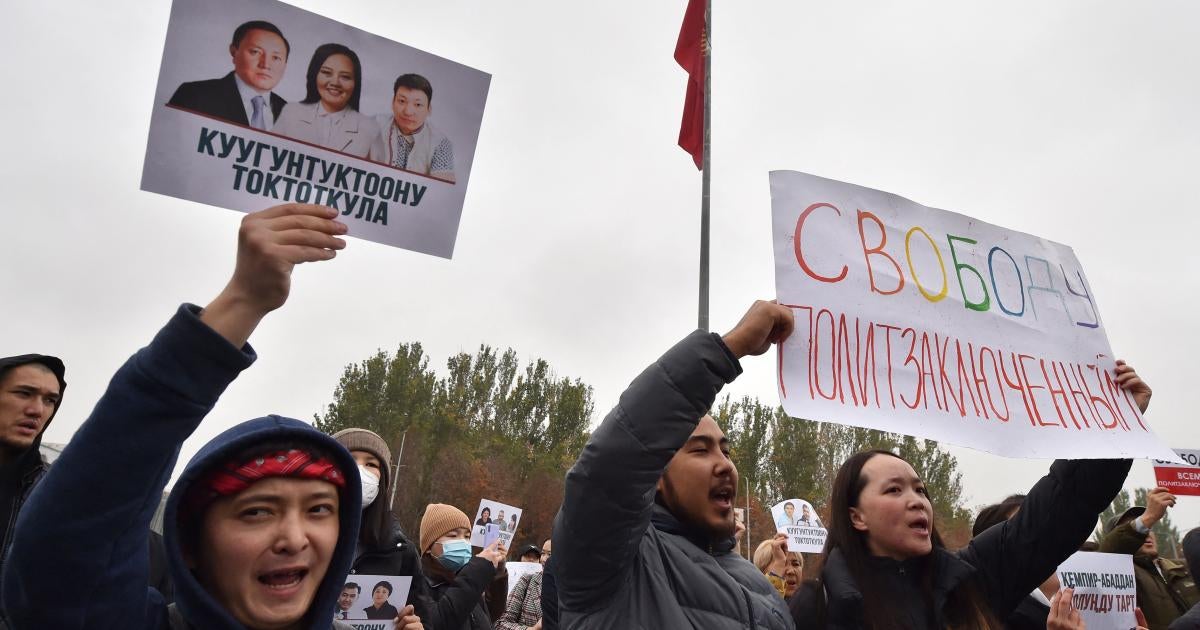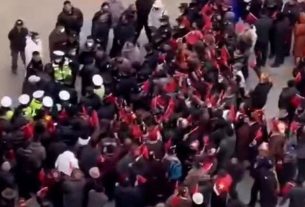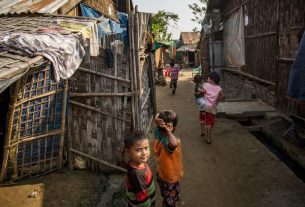(Almaty, June 12, 2024) – The Kyrgyzstan prosecutors’ request for 20-year sentences for a group of government critics in the so-called Kempir-Abad case compounds an already shocking miscarriage of justice, the Norwegian Helsinki Committee, International Partnership for Human Rights, Human Rights Watch, People in Need, Civil Rights Defenders, Helsinki Foundation for Human Rights, Freedom Now, and the International Federation for Human Rights (FIDH) said today. Kyrgyzstan’s authorities should drop the politically motivated charges and immediately release the group, who were arrested arbitrarily, and some of whom have already spent up to 19 months in pretrial detention.
On June 10, 2024, prosecutors asked the Pervomaysky District Court in Bishkek to convict the defendants, who are charged with fomenting mass unrest and attempting to seize power by force, sentence them to 20 years in prison, and confiscate their property. The more than 20 defendants include human rights defenders, journalists, bloggers, and other civil society activists, who were arrested in October 2022 after peacefully campaigning against the now-completed transfer of jurisdiction over the Kempir-Abad dam to Uzbekistan as part of a border demarcation deal. It is expected that the trial will end and the verdict will be issued on June 13.
Criminal proceedings against the group have been underway since June 2023. Authorities classified the case as secret and the trial has taken place behind closed doors. This violates the defendants’ right to a fair and public hearing, guaranteed by article 14.1 of the International Covenant on Civil and Political Rights (ICCPR), to which Kyrgyzstan is a party. While independent trial monitors have not had access to the trial, information from the defendants and their lawyers indicates that the proceedings have been marred by serious violations of due process and fair trial guarantees, set out in national law as well as in the ICCPR and other international human rights instruments, which Kyrgyzstan is obliged to respect.
For example, in violation of requirements under Kyrgyz law, the indictment was not read out loud to all the defendants, with the prosecution contending that reading it aloud only to some of them was enough because the charges against others were “identical.” Contrary to international norms, hearings have in some cases been held in the absence of defense lawyers, defense motions such as those to commission expert studies of court materials have repeatedly been rejected, defense witnesses have not been allowed to testify in court, and defense lawyers have not been granted adequate time to prepare their cases.
The prosecution appears to have presented no credible evidence to support the charges, with the primary evidence being doctored recordings of discussions between the defendants about planned peaceful protests.
Judicial and law enforcement authorities have also allegedly intimidated and harassed lawyers for representing their clients in this case.
Following their arrest in October 2022, the courts extended the defendants’ pretrial detention several times in violation of international standards, which require only using pretrial detention in exceptional cases and for as short a time as possible. As a result, the defendants spent many months in unsanitary conditions, with limited access to medical treatment and family visits.
Primarily due to health concerns, several defendants were eventually transferred to house arrest, or released with a travel ban pending the outcome of the trial. However, eight remain in custody going on 20 months.
On June 7, 2024, one of the defendants who had been transferred to house arrest, Nurlan Asanbekov, fell ill during the proceedings and was taken to a hospital, human rights defenders reported. According to them, Asanbekov had recently undergone a serious operation and is still recovering. However, police officers allegedly ordered the hospital doctors to discharge him later the same day. As a result, the rights defenders said, he tried to set himself on fire, but they convinced him not to. Nevertheless, his case illustrates the desperation felt by Kempir-Abad defendants because of their treatment, the rights defenders said.
The defendants in the Kempir-Abad case were arbitrarily arrested, their extended detention was unjustified, and they should never have been charged or prosecuted for any crime, far less the serious ones the authorities pursued, the eight human rights groups said. The authorities are blatantly retaliating against the activists’ peaceful and legitimate criticism and civic engagement against the transfer of the Kempir-Abad dam. Their criminal prosecution in a trial that violates international standards not only deals a severe blow to freedoms of expression, association, and assembly in Kyrgyzstan, but also to guarantees for access to justice and the rule of law in the country.
The authorities should prevent any further damage, drop the case, and secure the unconditional release of the defendants, the rights groups said. Kyrgyzstan’s international partners should support this call and demand justice for the defendants and accountability for those responsible for violations of their rights.
The case takes place against the backdrop of a dramatic deterioration in civic space in Kyrgyzstan, with civil liberties coming under unprecedented pressure. In recent months, authorities have increasingly cracked down on independent media, including by seeking the forced shutdown of a leading independent outlet, raiding others, and arbitrarily detaining and prosecuting independent journalists and media workers. There has been a growing number of criminal cases against outspoken activists-bloggers. Parliament also recently adopted a Russian-style law on “foreign representatives”, incompatible with Kyrgyzstan’s international human rights commitments, that subjects civil society organizations to undue government control and interference.
Kyrgyzstan’s authorities should end their crackdown on free speech and other fundamental freedoms in the country and put in place meaningful measures to safeguard human rights in line with Kyrgyzstan’s international obligations.



